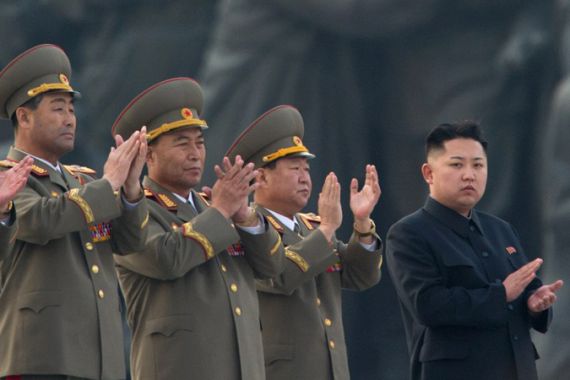US study: North Korea expanding nuclear plant
Satellite imagery shows that Pyongyang has doubled the size of its uranium enrichment plant.

A US institute tracking North Korea’s nuclear weapons programme says recent satellite photos show Pyongyang is doubling the size of its uranium enrichment plant.
The imagery comes from two sources – satellite companies Digital Globe and Astrium Geoinformation Services – and was seen by The Associated Press.
Keep reading
list of 4 itemsAfter the Hurricane
World’s coral reefs face global bleaching crisis
Why is Germany maintaining economic ties with China?
The Institute for Science and International Security (ISIS) said the photos of the Nyongbyon nuclear complex show construction under way to “effectively double” the size of the enrichment hall. That would allow North Korea to also double the number of centrifuges now enriching uranium.
Revealing the existence of a uranium enrichment programme three years ago, Pyongyang said the plant contained 2,000 centrifuges.
That means the 4,000 centrifuges that the space is apparently being expanded for could potentially make twice that amount, giving them the capacity to build up to four bombs a year, should the country decide to use them for that purpose.
The most recent satellite photo was taken on July 28. ISIS said that measured against earlier images, it showed construction at the Nyongbyon site, including “the expansion of the gas centrifuge building” to twice its previous size.
Government offices in Pyongyang that could comment were shut for the day ahead of publication of the ISIS report.
A North Korean diplomat with his country’s mission to the United Nations in New York said he had no comment because he had not yet seen the report. He demanded anonymity because he was not authorised to speak publicly about his country’s nuclear programme.
Experts believe the plant is meant primarily to provide fuel for the power-hungry country. But centrifuges producing such fuel can be reconfigured to make weapons-grade uranium.
That has led to international concerns because of three nuclear weapon tests by the North Koreans, the most recent in February, and its stated intention to continue down the nuclear weapons path.